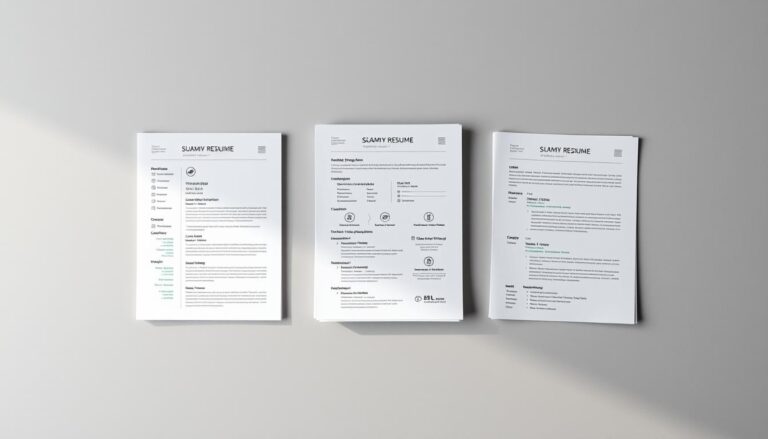How to Stand Out in a Competitive Remote Job Market
The remote job market is becoming increasingly competitive, with 46% of all applications being for remote positions, according to recent statistics from LinkedIn. To succeed in this landscape, job seekers must develop a strategic approach to stand out.
The shift towards flexible work arrangements has opened up new opportunities, but it also means that the competition is no longer limited to a specific geographic area. To secure a remote job, one must be proactive and adaptable.
By understanding the current state of the remote job market and tailoring your approach, you can increase your chances of success. This involves showcasing your skills, being proactive, and demonstrating your ability to work effectively in a remote setting.
The Current State of Remote Work Competition
The remote job market is becoming increasingly competitive as more companies adopt flexible work arrangements. According to Robert Half’s 2025 report, this shift has led to a significant change in the job market, with more professionals vying for remote positions.
Remote job seekers now face heightened competition, making it essential to stand out in a crowded job market. The trend towards flexible work arrangements has not only expanded the talent pool but also increased the number of applicants for each remote position.

To succeed, remote job seekers must be aware of the current job market trends and adapt their strategies accordingly. Understanding the competitive landscape is crucial for navigating the challenges of the remote job market.
Crafting a Remote-Optimized Resume
A remote-optimized resume is not just a formality; it’s a necessity for remote job seekers. To stand out in a competitive remote job market, your resume must effectively showcase your skills and experience in a remote work setting.
Highlighting Remote Work Experience is crucial. When detailing your work experience, focus on achievements and responsibilities that are relevant to remote work, such as self-motivation, time management, and digital communication skills.
Quantifying Remote Achievements
Quantifying your achievements can significantly strengthen your resume. For example, instead of saying “increased productivity,” say “increased productivity by 30% through effective time management and prioritization.” This demonstrates the tangible impact of your work.
Addressing potential concerns about remote work, such as isolation or difficulty in communication, can also be beneficial. Highlighting your experience with collaboration tools and strategies for staying connected with team members can alleviate these concerns.
By focusing on these aspects and tailoring your resume to the remote job you’re applying for, you can significantly improve your chances of standing out in the competitive remote job market.
Building Your Digital Presence
In the competitive world of remote work, having a robust online profile can make all the difference. A strong digital presence allows you to showcase your skills, connect with potential employers, and stand out in a crowded job market.

To establish a compelling online persona, start by optimizing your LinkedIn profile or other professional networking sites. Ensure your profile is complete, up-to-date, and highlights your expertise. Explore remote career opportunities that match your skills and experience.
Recommendations and Endorsements Strategy
Recommendations and endorsements play a crucial role in building credibility and trust with potential employers. To leverage these effectively, focus on providing high-quality work and building strong relationships with your colleagues and clients. Request recommendations from those who have firsthand experience with your skills and accomplishments.
Endorsements for specific skills can also enhance your online profile. Encourage your network to endorse you for the skills you’ve listed on your profile. In turn, be sure to endorse others for their skills, as this can help foster a supportive professional community.
By building a strong digital presence and leveraging recommendations and endorsements, you can significantly improve your visibility and attractiveness to potential employers in the remote job market.
How to Stand Out in a Competitive Remote Job Market
Differentiating yourself in a sea of remote job applicants demands a deep understanding of what employers are looking for in a candidate. To stand out, you need to develop a range of skills that are highly valued in remote work environments.
Communication and Collaboration
Effective communication is the backbone of successful remote work. It involves clearly articulating your ideas, actively listening to others, and being responsive to messages. Collaboration tools like Slack, Trello, and Asana are commonly used in remote teams, so being proficient in these tools can give you a competitive edge.

When working remotely, it’s easy to fall into bad habits or get distracted. Time management skills are crucial for staying focused and meeting deadlines. This includes creating a dedicated workspace, setting a routine, and minimizing distractions. Self-motivation is also vital, as it drives you to take initiative, set goals, and continuously improve your skills.
By focusing on these areas, you can significantly enhance your visibility and attractiveness to potential employers in the competitive remote job market.
Essential Technical Skills for Remote Success
Remote work demands a specific set of technical skills that are essential for effective collaboration and productivity. In a remote work environment, being proficient in various digital tools and platforms is crucial for staying connected with team members and managing tasks efficiently.
Digital literacy is a fundamental requirement, encompassing skills such as navigating different operating systems, using cloud-based services, and being familiar with project management tools. Moreover, remote workers need to be adept at using communication and collaboration tools like Zoom, Slack, and Trello to facilitate seamless interaction and teamwork.

Having the right remote work tools at your disposal can significantly enhance your productivity and ability to work independently. It’s also important to stay updated with the latest technologies and trends in remote work to remain competitive. By focusing on developing these technical skills, individuals can set themselves up for remote success and thrive in a remote work setting.
Effective Remote Job Search Strategies
Effective remote job search strategies are key to standing out in a crowded job market. To succeed, remote job seekers must be proactive and adaptable.
Virtual Conferences and Webinars
Attending virtual conferences and webinars is a great way to learn about the latest industry trends and network with potential employers. These online events provide opportunities to connect with people in your field and gain insights into the job market.
Joining online professional communities is another effective strategy. Platforms like LinkedIn and specialized forums allow job seekers to connect with others in their industry, share knowledge, and discover job opportunities.
By leveraging these strategies, remote job seekers can increase their visibility and improve their chances of landing a job. It’s about being strategic and making the most of the digital tools available.
Mastering the Remote Interview Process
As remote work continues to grow, acing a remote interview has become a vital skill for job seekers. To succeed, one must focus on both the technical aspects and personal presentation.
Technical Setup and Environment
A well-prepared technical setup is crucial for a smooth remote interview. Ensure your internet connection is stable, and your audio and video equipment are functioning properly. Choose a quiet, well-lit space with a neutral background to minimize distractions.
Even in a remote setting, body language plays a significant role in conveying confidence and engagement. Maintain eye contact by looking into the camera, and use gestures to emphasize points. Being mindful of your non-verbal cues can make a positive impression on the interviewer.
Engagement is also key; be prepared to ask insightful questions and actively listen to the interviewer’s responses. This two-way interaction helps build a connection and demonstrates your interest in the position.
Conclusion
To succeed in today’s competitive remote job market, job seekers must adopt a strategic approach. This involves crafting a remote-optimized resume, building a strong digital presence, and leveraging essential remote work skills.
By focusing on these key areas, individuals can increase their visibility and appeal to potential employers. Developing a robust online presence, for instance, allows job seekers to showcase their skills and experience to a broader audience.
As the remote job market continues to evolve, it’s essential to stay adaptable and committed to ongoing skill development. By doing so, job seekers can stand out in a competitive remote job market and secure their desired roles.
In conclusion, standing out in a competitive remote job market requires a combination of strategic planning, skill development, and effective self-presentation. By following these guidelines, individuals can improve their chances of success in the remote job market.






